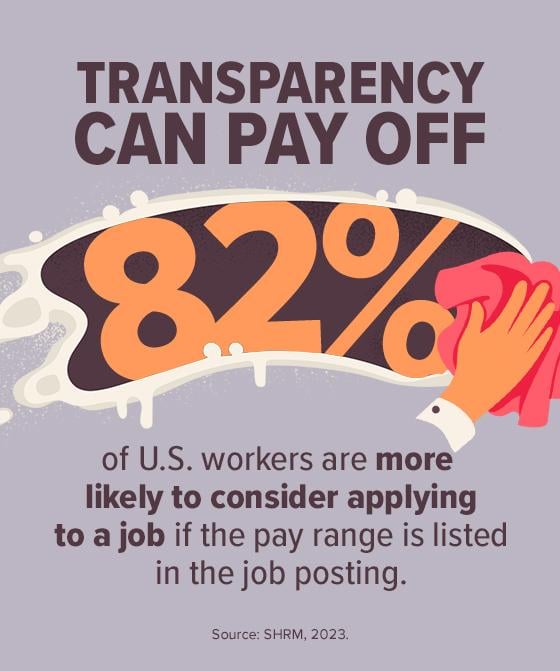Picture this: you’re at a job interview, highly interested in the role. You've answered several questions about your experience and education, and then the interviewer asks, "What are your salary expectations?" It's common to feel unsure about how to respond to this question and to wonder if you should answer directly or not. In this post, we provide three alternatives to help you craft an effective response.

You want to avoid the awkward moments. Source: Reddit.
Why is this question asked?
Recruiters ask this question for several reasons:
1. They want to understand how you value yourself professionally.
2. They prefer not to waste time with candidates whose salary expectations are significantly higher than what they can offer for the position.
3. They aim to find the best candidate who fits both the job requirements and the salary range.
It is important to clarify that there's no perfect answer that will save you in all situations. So you better be ready as during interviews - unless the job posting specifies a salary - the question about your salary expectations will eventually come up.

If only job openings always had their range disclosed, this blog post wouldn't be necessary. Source: SHRM
Then, two things can happen: 1, the recuriter might share the salary for the offer and ask your thoughts (not very common), or they might come with the famous question "So John Does, what are your salary expectations?". In that case we propose three distinct approaches you can take when responding to this question:
1. Direct response: My salary expectations are "xyz":
In this case, you give a specific figure, but remember that responding directly carries several risks and advantages, which are as follows:
Risk:
You might offer a salary below the market rate or one that doesn't match the position and tasks you'll have to perform. To avoid this, you can do several things:
- Conduct market research on similar positions and consult reports like the Prosperity Digital Salary Guide.
- Use your network and ask contacts in the industry to provide guidance about the salarie being paid for certaing positions in their sector.
- Research other similar job offers to see what salary they offer. LinkedIn, Indeed, Glassdoor, are some of the main job boards where you can find good information.
- Consider not only the salary itself but also the benefits the company offers: flexible hours, telecommuting, health insurance, and childcare vouchers, among others.
On the other hand, it's important to consider that responding too soon to the question about salary can give the impression that you are more interested in the compensation than the position.
Advantage:
When you provide a specific amount, you set things clear from the start and don't leave room for lowballing. To avoid 'closing the doors' to negotiation, you can state the figure and then ask the recruiter what they think.
2. Indirect response. "Return the ball":
Another way to respond to the question about your salary expectations is to "return the ball" to the interviewer. This means that when asked about the salary you wish to receive, you request that they share the salary range for the position being offered.

This actually works most of the time. Source: Imgur.
Risk:
Recruiters or hiring managers will likely answer your question. You may discover that the salary range offered by the company for the position is below what you expected. In this case, you can openly say that you expected a range of X to X and that you are open to negotiation once you know all the benefits the company offers.
If the salary range offered is far from your expectations, you can explain that with your experience and current salary, you cannot accept it and ask if there can be any flexibility in the range.
Advantage:
With this approach, if you are happy with what the recruiter told you, you can provide a salary based on the range you just heard, and continue with the selection process.
3. Margin response. Reveal a salary range:
Another good option for responding to the question about your salary expectations is to reveal a salary range, instead of asking the recruiter to provide it.
Risk:
If you are not well-acquainted with the job responsibilities or the benefits offered by the organization, your salary range might not be appropriate. To ensure it is balanced, you can conduct the analyses mentioned earlier.
Advantage:
You can offer a salary range with which you feel comfortable and state that it is negotiable. Additionally, you will demonstrate flexibility and provide the interviewer with the opportunity to adjust the figure based on the benefits the company offers.
Answers you should avoid:
When asked about your salary expectations, there are several ways to answer that you should avoid. These are:
- Do not lie about your education, experience, or current salary.
- Do not be evasive because you don’t know how to answer, as this will give a bad impression.
- Do not undervalue yourself by only talking about salary without mentioning your skills and what you can bring to the company.
- Do not be too direct and ask, “How much are you offering?”
It’s important to always remember that you need to justify your salary position and consider not only the salary offered by the company but also all the accompanying benefits, as well as the value you can bring to the organization.
Prosperity
If you are seeking a job in digital or need assistance with your recruitment efforts, check out our website! https://www.prosperity.ie/
If you want to know more about the recruitment process at Prosperity get in touch!
Moreover, if you are looking for guidance on salaries, download our 2024 Salary Survey!




